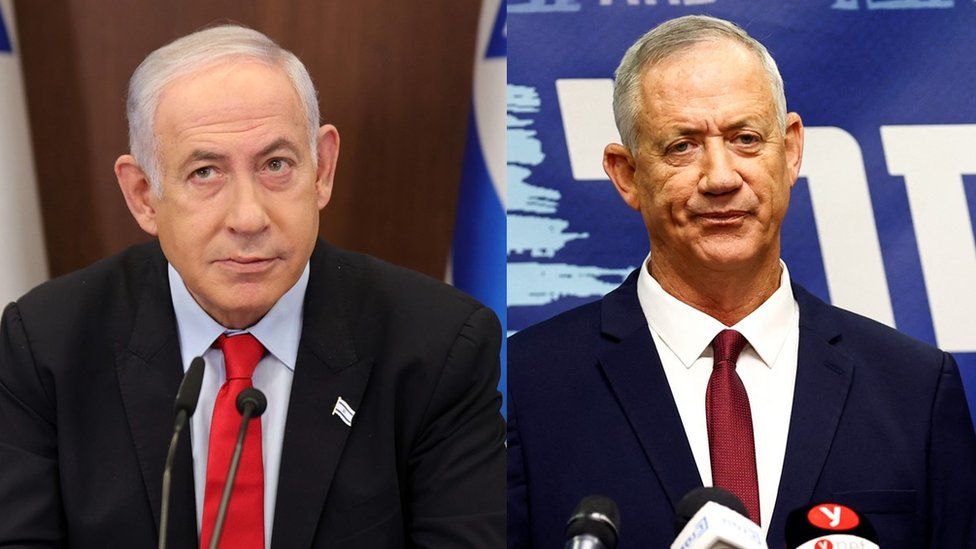-

-
-
Loading

Loading

In a surprising turn of events, Israel's prime minister, Benjamin Netanyahu, and opposition figure, Benny Gantz, have agreed to form a temporary emergency government. The agreement also includes the creation of a "war management cabinet" to handle the ongoing conflict. This decision comes after relentless attacks by Hamas militants from the Gaza Strip. Both leaders have set aside their bitter political rivalry and joined forces, putting an end to widespread protests that had been escalating in the country. Alongside Netanyahu and Gantz, the new temporary cabinet will also include former defense minister and centrist National Unity Party leader, Yoav Gallant. However, the country's main opposition leader, Yair Lapid, has chosen not to join the alliance, although a seat will be reserved for him in the war cabinet. The joint statement from Netanyahu and Gantz emphasized that during the war, government decisions and bills unrelated to the conflict will not be promoted, and all senior appointments will remain in effect. The death toll in Israel has risen to over 1,200 since the surprise attack by Hamas, with reports of up to 150 hostages, including elderly individuals and children. The fighting continues, with thousands of Israeli troops positioned near the Gaza border for a potential ground invasion. In addition to Hamas, Israel has also faced attacks from the Hezbollah militia in Lebanon and Syria. Energy, water, and food supplies have been cut off from the Palestinian territory as a retaliatory measure. The establishment of a unity government in Israel has been welcomed by various ministers, including Itamar Ben Gvir, who handles national security. The decision to work together follows months of protests against the prime minister's controversial judicial reforms, with support from his political rivals, ex-military officials, former chief justices, legal figures, and business leaders. The protests even garnered the support of military reservists, including air force pilots, who threatened to refuse service, potentially impacting Israel's defense capabilities. Last month, Israel's Supreme Court heard petitions against the government's legal amendments, which aimed to limit the Court's powers.